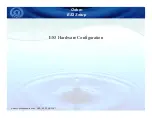
CONTACT US AT
www.DRpower.com
9
Twist the file a half turn with each stroke into the cutting edge of the tooth,
and don’t bear down on the file. Sharpen every other tooth until you get
back to your mark.
Note:
A chain that is sharper on one side than it is on the other will not cut in a
straight line, but will tend to drift up or down, consistent with the sharper
side of the chain. If your blade drifts up or down, check to see that the chain
is equally sharp and the Teeth are the same length on both sides.
Note:
After the cutting edges are all sharp, the rakers need to be filed down to give
the teeth the proper cutting depth. See the following procedure to complete
the Beaver Blade sharpening.
6.
Hold the flat file horizontal and file down the rakers to the suggested
dimension
(Figure 10)
.
Note:
If not enough material is removed from the rakers, the teeth will not cut efficiently. If too much material is removed from the
rakers, the teeth will cut too aggressively and cause instability in the cutting action.
.025
Raker
Cutting Edge
Figure 10






























